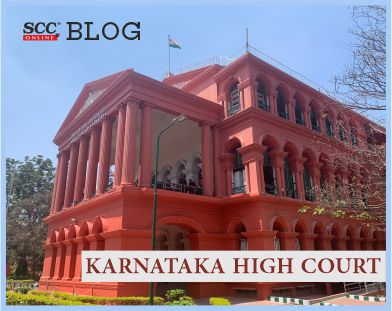Karnataka High Court: While deciding the instant writ petition seeking to set aside the memorandum of settlement arrived between the parties involved in divorce proceedings under the provisions of CPC r/w the provisions of Karnataka Civil Procedure (Mediation) Rules, 2005, the Bench of M. Nagaprasanna*, J., held that once the issue is settled before the Court and a settlement has been recorded, a party cannot call to question the settlement just because her former husband has re-married. The only ground when such settlement can be questioned, is the ground of fraud.
The parties to the instant dispute had instituted divorce proceedings. While the proceedings were at the stage of filing written statement, the matter was referred to mediation on request of the parties. The parties then arrived at a memorandum of settlement and separation between them was agreed upon along with sum of Rupees 30 lakhs as permanent alimony.
After the afore-stated annulment, the respondent re-married and started living with his second wife. It is at this point that the petitioner, who was the former wife, registered a complaint before the jurisdictional police and threatened the respondent of dire consequences. She also instituted proceedings before the Karnataka State Scheduled Castes/Scheduled Tribes Commission, which was stayed by the High Court. The petitioner also filed a complaint against her former husband under several provisions of the IPC but got no relief. Finally, she instituted the instant writ petition to challenge the above-mentioned memorandum of settlement.
The counsel for the petitioner contended that she was mentally unstable when the settlement was agreed upon and was not aware of the consequences of such settlement; therefore, the settlement is void as one of the parties was of unsound mind.
Per contra, the respondent contended that the petitioner with eyes open, had accepted the settlement and the permanent alimony and was silent for 2 years and resorted to legal actions only when the respondent re-married. It was contended that the respondent has moved on and turning the clock back would prove devastating for his present family life.
The Court perused the facts, legal trajectory and the contentions raised. Considering the memorandum of settlement, the Court noted that the parties had undertaken that they would not interfere in each other's lives in future. The Court further noted that in light of the settlement, the respondent sought amendment of the plaint and removal of portions which had painted the petitioner's character in poor light, especially the ones relating to mental insanity, as the same was merely an allegation and not a proven fact.
Noting the various proceedings instituted by the petitioner once her former husband had re-married, the Court held that earlier settlement cannot be questioned by the petitioner just because her former husband has re-married. The Court strictly observed and admonished the petitioner as she appeared to have abused every jurisdiction in law. “After being present and knowing fully well what has transpired, the petitioner seeks to initiate so many proceedings”
The Court however “held its hands back” vis-à-vis imposing exemplary costs upon the petitioner, as she was a wife whose marriage had been annulled albeit with consent and imposition of costs would only increase the agony.
[Latha Choodiah v. Sree Balaji H., 2023 SCC OnLine Kar 2, decided on 02-01-2023]
* Justice M. Nagaprasanna authored the judgment
Advocates who appeared in this case :
Ravi R., Advocate, for the Petitioner;
Suyog Herele E., Advocate, for the Respondent.
*Sucheta Sarkar, Editorial Assistant has prepared this brief.






